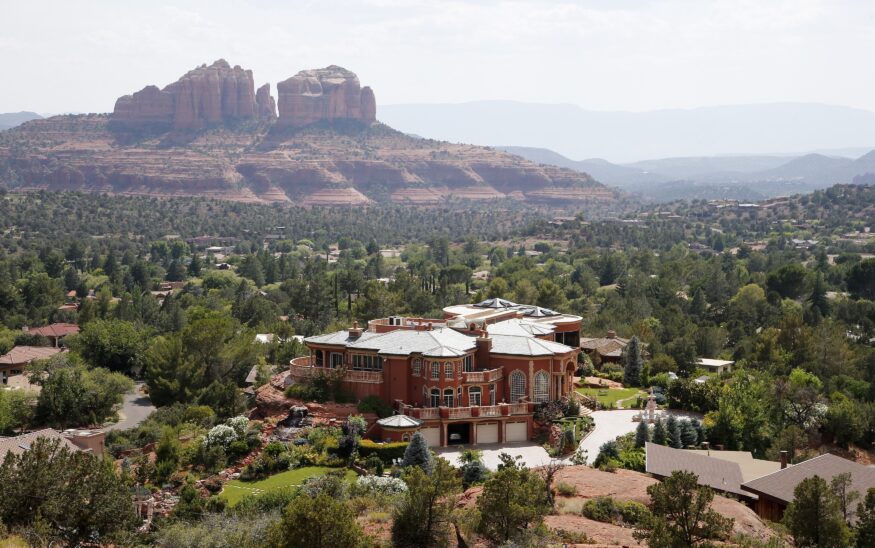Arizona cities to seek legislation limiting short-term rentals
Jakob Thorington Arizona Capitol Times//September 1, 2025//
Arizona cities to seek legislation limiting short-term rentals
Jakob Thorington Arizona Capitol Times//September 1, 2025//
Key Points:
-
League of Arizona Cities and Towns seeks legislation to regulate short-term rentals
-
Municipalities want to limit short-term rental licenses to address housing challenges
-
Short-term rentals make up 10% of local housing stock in some areas
In the next session, the League of Arizona Cities and Towns will pursue legislation that allows municipalities to further regulate short-term rentals.
Members of the league’s resolutions committee approved seven policy goals to pursue as legislation for the 2026 legislative session during the organization’s annual conference Aug. 19-22, including an item that would allow cities to limit the number of short-term rental licenses issued in their jurisdictions.
“The focus will be on addressing the continued growth of investor-owned short-term rentals, which have contributed to housing challenges in many communities,” said Tom Savage, the league’s legislative director.
According to a resolution prepared by the league, municipal leaders are seeking legislation that would allow them to cap the number of short-term rentals in an oversaturated area and reduce the threshold for license revocation to take action against properties that have repeat violations of city ordinances.
The resolution states that short-term rentals have greatly impacted housing affordability and availability in some areas of the state, particularly small communities. Some areas with high tourism visitation are seeing short-term rentals make up as much as 10% of the local housing stock.
One area of the state that’s been affected greatly by short-term rentals is Sedona. A 2024 community report from the city notes that 18% of the city’s housing stock was comprised of short-term rentals, leading the City Council to declare a housing shortage emergency and designate a parking lot for workers in the city to sleep in their vehicles if they’re experiencing homelessness through the Safe Place to Park program.
Efforts to change state law for short-term rentals have gone unheard in recent legislative sessions. Republican and Democratic lawmakers introduced legislation related to short-term rentals in the 2025 legislative session, but no bill was heard in any committee despite Gov. Katie Hobbs urging the Legislature to address the issue in her State of the State Address at the beginning of session.
Sen. John Kavanagh, R-Fountain Hills, sponsored Senate Bill 1141 during the session, which would have shortened the threshold for cities to suspend a short-term rental license. Kavanagh was recently named Senate majority leader following the end of the recent legislative session.
The league has stayed away from lobbying efforts against short-term rentals at the Capitol as part of a 2022 moratorium league officials agreed to with Airbnb and Expedia Group that prevented the group from lobbying for local regulation for three years. That deal was a result of a 2022 law that allowed municipalities to issue short-term rental licenses.
That moratorium also prevents the league from attempting to repeal a 2016 law that prohibits cities and towns from banning short-term rentals until 2027, although individual cities have lobbied for changes to the statute individually.
Counties are also seeking changes to short-term rental policy. Mohave County Assessor Jeanne Kentch hoped for legislation last session that would codify assessing properties that are used for renting for periods of less than 30 days in the same classification as hotels and motels.
Rep. John Gillette, R-Kingman, sponsored the legislation with House Bill 2316, which was among the short-term rental bills that didn’t get a hearing.
“When nobody likes it, it goes in a drawer,” Kentch said. “That’s what happened to my bill.”
Kentch said she believes her bill would create a more equitable environment for hotels and motels and make it easier for assessors in the state to determine their assessments for properties that are operating as short-term rentals.
HB2316 would have specifically applied to properties with transient renters. Kentch said she’s not looking to include a primary property that rents out an accessory dwelling unit to long-term renters with the bill.
“I’m not fair to my hotels right now because I’m classifying them as commercial but I’m not classifying the house down the street that’s doing the exact same thing as commercial,” she said.
According to data collected by the Arizona Neighborhood Alliance, a statewide organization of neighborhood leaders, there were more than 70,000 short-term rental units across the state in 2024, but there were only about 5,550 short-term rental transaction privilege tax licenses accounts established that year.
A July report from AirDNA, a vacation rental and analytics company, indicates about a quarter of short-term rentals in the state are “professionally managed” by a company that has at least 21 listings in the state.
AirDNA didn’t have data about ownership of vacation properties, but the company shared with the Arizona Capitol Times that the two companies that manage the most properties in the state, Evolve and Vacasa, typically don’t own the assets they manage.











































